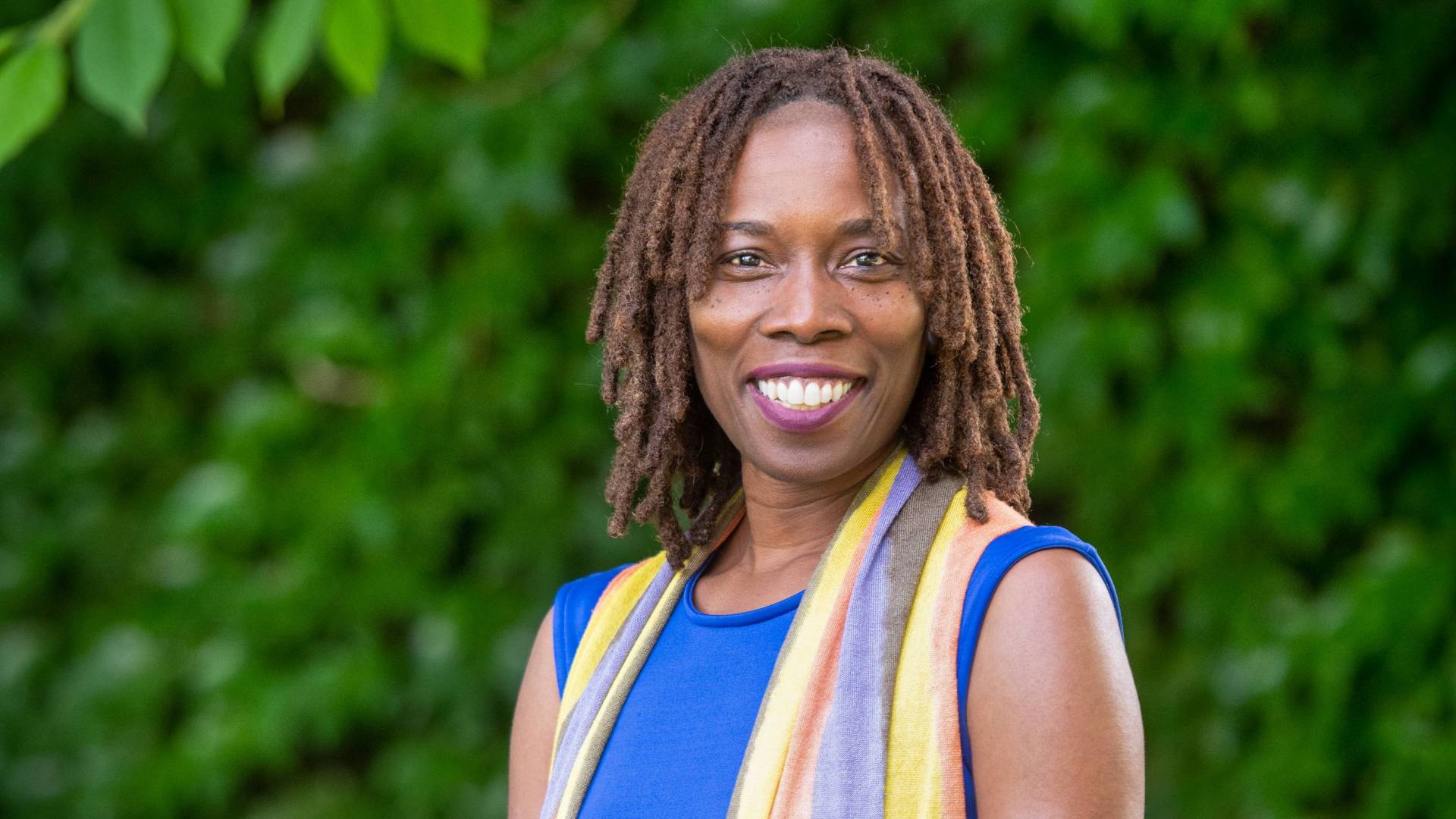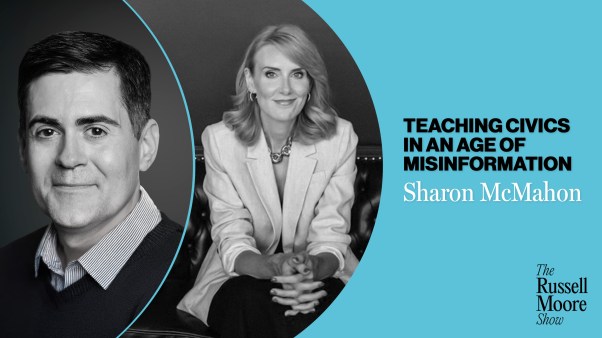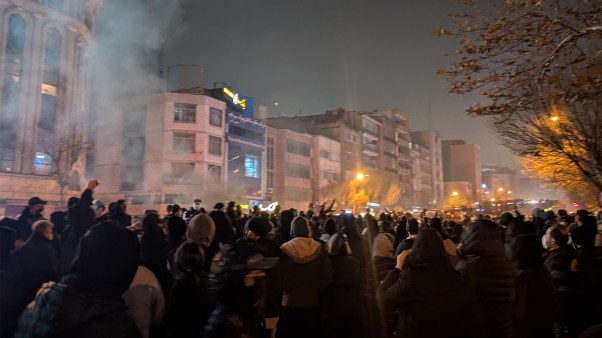Thema Bryant’s calling to psychology started when she picked up her family’s home telephone as a pastor’s kid growing up in Baltimore.
Her father, Bishop John R. Bryant, led Bethel African Methodist Episcopal (AME) Church—one of the biggest congregations in the city and the oldest in Maryland.
“People would often call our home in moments of crisis,” said Bryant. “When people are in a moment of crisis, it often doesn’t matter who answers the phone, they kind of get started with whatever the issue is, and I was always drawn to bearing witness and to being willing to hear and listen and to encourage from very early on.”
Bryant went from being a curious and compassionate pastor’s daughter to a clinical psychologist specializing in trauma. Last year, she was named president-elect of the American Psychological Association (APA) and will begin her term in 2023.
Although she will be the fourth Black woman to hold the position, Bryant believes her background sets her apart and offers critical insight into the mental health needs brought on by the COVID-19 pandemic, particularly among the Black community. A recent profile of Bryant in The Washington Post was titled “Meet the psychologist drawing from the Black church to reshape mental health care.”
Bryant grew up in a faithful family; her mother was also a minister, and her older brother became a pastor. As an ordained elder in the AME church, she is unapologetic about grafting her approach to psychology in her faith.
“I believe there are many different callings,” said Bryant, a psychology professor at Pepperdine University and director of the school’s Culture and Trauma Research Laboratory. “I think when people hear the word ‘calling,’ they think solely preaching, but there many different ways that God can utilize us. I feel that God has called me to emotional healing, so I entered the field of psychology.”
The church has looked to mental health professionals to help respond to the onslaught of burnout, anxiety, and grief in recent years. Back in February, Bryant spoke at a conference held by Wesleyan Holiness Connection and Point Loma Nazarene University. The theme: “Pastoral Ministry in Times of Trauma.”
The concerns are even more acute in many Black communities, where even before the pandemic, pastors and ministry leaders functioned as de facto first responders, problem solvers, advocates, and therapists.
COVID-19 compounded the issues weighing on their congregants, which in turn compromised the mental health of these pastors and leaders, said Dawn Baldwin Gibson, executive pastor of Peletah Ministries. Her organization provides emotional and spiritual support to Black pastors and lay leaders in North Carolina.
“I am looking forward to seeing what Dr. Bryant will do with this moment,” said Baldwin Gibson.
Leaders like those at Peletah are among a new generation that’s working to shift how Black Christians address mental health struggles.
“I grew up with the saying, ‘What goes on in the house stays in the house’ or ‘You don’t air your dirty laundry.’ However, there is a beautiful Scripture in Proverbs that talks about how there is safety in a multitude of counselors,” said Baldwin Gibson. “We really try to engage that conversation, that you can have Jesus and a therapist.”
In addition to the stigma around mental illness in society and in the church, racism has been a factor that’s “resulted in a lot of people suffering in silence,” Bryant said. Black Americans may feel the pressure to keep their problems a secret to avoid any more negative associations with their community.
They may also fear bias or discrimination by mental health professionals themselves. Last October, the APA apologized for the harm it’s caused people of color over its 130-year history.
“When African Americans do seek care, there is an assumed bias that prevails and a lack of trust in the providers that plays a really large role in terms of the continuation of care,” said APA chief diversity officer Maysa Akbar.
Public health researchers suggested that Black Americans were at greater risk for post-traumatic stress disorder and other psychological ramifications of the pandemic as their community bore more illnesses, death, grief, economic decline, and social disruptions than the white population. Even Black churches remained closed and online-only far longer than other traditions.
As Bryant continues her work in trauma healing and steps into leadership at the APA, Black Christians are more sensitive than ever to mental health concerns. One journal article said the pandemic aftermath poses an opportunity as “COVID can legitimize confronting personal problems and thinking strategically about how to solve them in an environment of less stigma and skepticism than typically greet recommendations for improved mental health.”
Atlanta minister and psychologist Alduan Tartt, a member of the APA, says that Bryant’s approach of destigmatizing therapy is already making a difference in his practice.
“The number of Black men who are seeking therapy is at an all-time high. With campaigns such as ‘It’s okay to not be okay’ and some of the high-profile suicides and other efforts, it’s becoming manly to discuss your feelings, so that you don’t negatively affect your families,” he said. “Psychology used to only be behind closed doors, so stigmas were allowed to exist, but now people are seeing that it’s not about straightjackets and lying on a couch.”
Baldwin Gibson has similarly seen church leaders involved in her ministry undergo emotional breakthroughs from attending therapy after years of skepticism and overlooking their own mental health needs.
“I heard Dr. Bryant say in an interview that ‘Busy doesn’t mean healed,’” said Baldwin Gibson, who is reading the psychologist’s new book, Homecoming: Overcome Fear and Trauma to Reclaim Your Whole, Authentic Self.
“That resonated with me because so many of us are going at breakneck speed, but we have to take the time to write, journal, take the walk, take time to breathe and focus on what it means to take care of ourselves.”
Bryant’s work at Pepperdine includes leading graduate-level research on the trauma around abuse, trafficking, genocide, and racism, as well as the role of religion in recovery.
“People always hold up that Jesus forgave quickly. Right. That Jesus said, ‘Forgive them, they know not what they do.’ But I what I want to point out to you is that forgiveness is different than reconciliation,” she said during remarks to pastors at Point Loma Nazarene. “Some of the reason people can’t heal is because we are forcing them to reconcile with people who aren’t sorry… Jesus forgives us, but to be reconciled with God requires repentance.”
Bryant recalled a woman in her Bible study sharing that her father sexually abused her, but that the woman had forgiven him and dropped her children at his house to attend the group.
“What have we taught that you believe I am going to applaud you for that?” said Bryant, who has shared about her own experience as a survivor of sexual assault. “So I said to her, ‘Sis, you are not going to be able to stay today. I am going to give you the handout. I need for you to get those kids, and next month, we have childcare here, so you can bring them here.’”
She wants all types of communities, including churches, to benefit from what scholars are learning about trauma healing, mental health, and faith.
“I use this mantra ‘psychology for the people.’ What that means is I am trying to cross barriers—economic or cultural barriers that withhold information that can be helpful to communities that need it the most,” she said.
“What we know about mental health or psychology should not just be in the academy. Many of us conduct research and it gets published in journals and the general public often can’t access those journals unless they are a part of a university and access them in the library.”
Bryant dispenses insights and advice on reality shows, TikTok, and in her podcast Homecoming, which was highlighted by the NAACP. Her teachings sometimes incorporate dance or poetry. While Bryant is navigating new territory, she draws from those who came before her.
“The first Black woman to lead the APA, Dr. Jessica Henderson Daniel, who is also AME, is my mentor, so we don’t arrive where we arrive by accident,” she said. “As a field, we have to be to holistic and respectful of integrating and acknowledging people’s faith. I will not be the first person to focus on these issues, but I do want to build on that legacy.”












